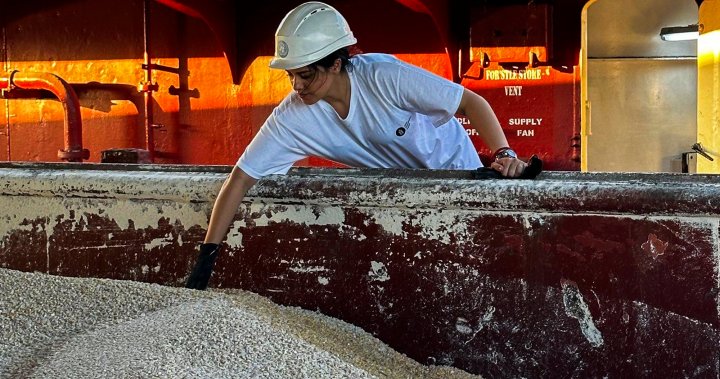A day after Russia withdrew from an agreement allowing the use of Ukrainian ports for grain shipments, Canada has urged Moscow to resume its participation in the Black Sea grain deal to prevent further disruptions to global food systems. Foreign Affairs Minister Melanie Joly and International Development Minister Harjit Sajjan issued a joint statement condemning Russia’s withdrawal as a de facto blockade. They called on Russia to immediately rejoin the agreement to avoid additional shocks to global food systems already strained by the conflict with Ukraine. The Canadian government emphasized that the Black Sea deal had prevented 100 million people from falling into extreme poverty and hindered the efforts of the World Food Programme to alleviate hunger in areas such as Afghanistan and Yemen. The Kremlin spokesperson Dmitry Peskov stated that Russia would suspend the Black Sea Grain Initiative until its demands regarding its own food and fertilizer exports are met. However, he also mentioned that Russia would reinstate its participation in the agreement once its demands were fulfilled. The Black Sea deal had facilitated the shipment of 32.8 million metric tons of grain from Ukraine, with over half of it going to developing nations that were cut off during Russia’s invasion. The initiative played a significant role in lowering the prices of wheat, vegetable oil, and other food commodities. Russia’s key demand is the reconnecting of its agricultural bank, Rosselkhozbank, to the SWIFT international payment network, which was severed by the EU. United Nations Secretary-General António Guterres proposed a solution involving JPMorgan Chase processing Russian food grain payments, but Russian Foreign Minister Sergei Lavrov stated that he had not heard of any such proposal. Ukrainian President Volodymyr Zelenskyy expressed his belief that the Black Sea deal could continue without Russian involvement. The suspension of the agreement is expected to impact several developing countries in Africa and western Asia. China, Spain, Turkey, and Italy have been the main recipients of cargo from Black Sea ports since the deal was established. The implications of the suspension will be felt globally, and concerns have been raised about the impact on food prices, food donation drives, and inequality in Canada. The UN’s annual report on food security and nutrition highlighted that approximately 725 million people faced chronic hunger in 2022, with projections indicating that nearly 600 million people will be chronically undernourished in 2030 due to the pandemic and the conflict in Ukraine.

Canada calls Russia’s withdrawal from the Black Sea grain deal a “de facto blockade”
Denial of responsibility! Swift Telecast is an automatic aggregator of the all world’s media. In each content, the hyperlink to the primary source is specified. All trademarks belong to their rightful owners, all materials to their authors. If you are the owner of the content and do not want us to publish your materials, please contact us by email – swifttelecast.com. The content will be deleted within 24 hours.
